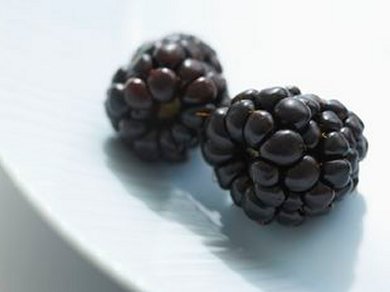Blackberries are rich in antioxidants such as anthocyanins and flavonols. This fruit has a short shelf life, therefore, it is often frozen for storage. However, it is not known whether the process of freezing affects the chemical composition of blackberries.
To investigate this issue, Maja Mikulic-Petkovsek, University of Ljubljana, Slovenia, and co-workers compared the metabolic composition of blackberries straight after harvesting or following 7 months of storage at –20 °. The study revealed that, following long-term storage in the frozen form, the vitamin C content decreased in all the six blackberry cultivar species analyzed. On the contrary, the total amount of sugars and organic acids increased. Similar results were obtained when examining flavonols and hydroxycinnamic acids. In addition, cyanidin 3-glucoside, the main anthocyanin present in blackberries, remained stable during long-term storage of the frozen blackberries or even increased when slow freezing processes were employed.
Long-term freezing is, thus, an appropriate and easy method to store blackberries without significantly altering their metabolic content.
- Changes in the Contents of Anthocyanins and Other Compounds in Blackberry Fruits Due to Freezing and Long-Term Frozen Storage,
Robert Veberic, Franci Stampar, Valentina Schmitzer, Vlasta Cunja, Anka Zupan, Darinka Koron, Maja Mikulic-Petkovsek,
J. Agric. Food Chem. 2014.
DOI: 10.1021/jf405143w




